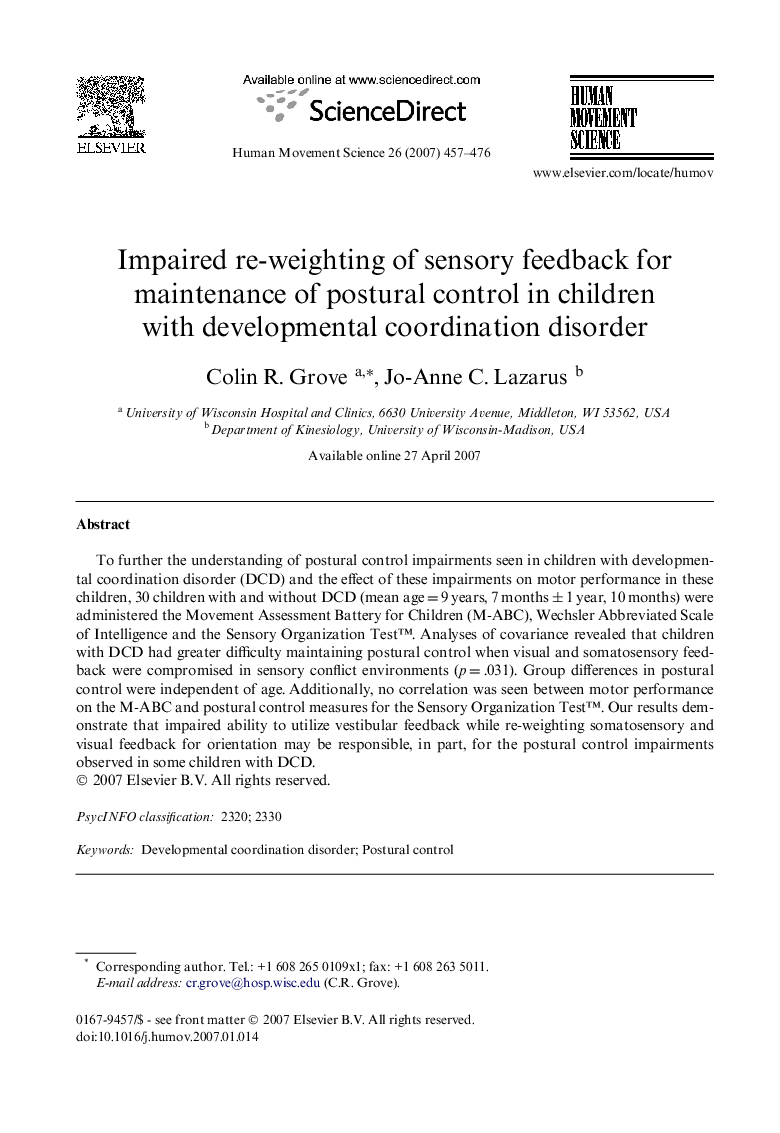| Article ID | Journal | Published Year | Pages | File Type |
|---|---|---|---|---|
| 928858 | Human Movement Science | 2007 | 20 Pages |
To further the understanding of postural control impairments seen in children with developmental coordination disorder (DCD) and the effect of these impairments on motor performance in these children, 30 children with and without DCD (mean age = 9 years, 7 months ± 1 year, 10 months) were administered the Movement Assessment Battery for Children (M-ABC), Wechsler Abbreviated Scale of Intelligence and the Sensory Organization Test™. Analyses of covariance revealed that children with DCD had greater difficulty maintaining postural control when visual and somatosensory feedback were compromised in sensory conflict environments (p = .031). Group differences in postural control were independent of age. Additionally, no correlation was seen between motor performance on the M-ABC and postural control measures for the Sensory Organization Test™. Our results demonstrate that impaired ability to utilize vestibular feedback while re-weighting somatosensory and visual feedback for orientation may be responsible, in part, for the postural control impairments observed in some children with DCD.
